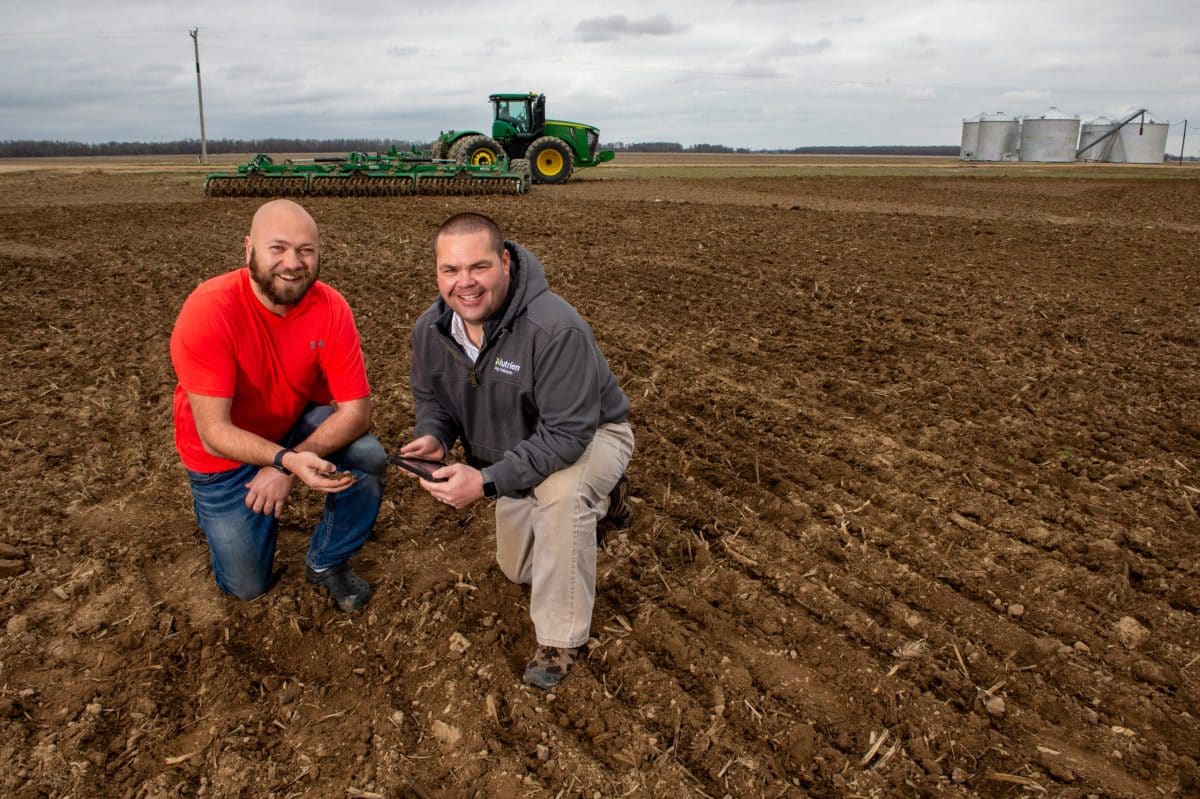Success can be defined many ways. It can mean continuous improvement. It can mean helping wildlife. It can be both a place and a way to live.
For Zack Brown, it is all these and more. The 30-year-old, fourth generation farmer calls Success, Ark., home, where he farms 2,500 acres of corn, rice, and soybeans. And he defines his success as a farmer like this: “We try to make every acre the highest potential it can produce, keeping up with the fertilizer, making sure I know what’s out there, what it needs, what I’m taking out.”
Zack Brown Farms lies in the Current River bottoms, which makes farming more challenging than other places. That’s because the river is prone to flooding. For fertilizer application, Brown uses GPS-guided application, putting down the initial application on his corn and rice within a day or two of planting to ensure nothing gets washed away. Then he uses three to four applications during the growing season to give the crops the nutrient boost they need to produce well.
To make sure he’s applying the right rate at the right time, Brown works with Nutrien Ag Solutions. He and Nutrien’s James Varvil use Veris soil sampling to sample and map the soil. Veris is a precision soil sampling technology that maps soil variability by integrating electric conductivity, topography, soil nutrient test values, pH, and organic matter.
The farm is smaller than many of the surrounding operations, meaning Zack must get the most from every acre. In 2019, corn was 17 bushels per acre higher than the county average. Rice yields were greater by 41 bushels per acre in 2019 and soybean yields exceeded county average by 15 bushels.
Water management is also a key component to managing the loss of nutrients in his rice fields. More than 30 years ago, Zack’s father and grandfather implemented a well-known practice today of using split runs and multiple side inlets for improved water use and more efficient management of water resources.
When harvest is complete, he will block water from draining, allowing rice fields to catch and hold rainwater, creating waterfowl habitat.
While generational knowledge is essential to successful farming, Zack leans heavily on science as well. “I try to stay up with the times and try to do some on-farm trials with different fertilizer techniques to see what gives me the best return on my investment,” he says.
“The groundwork has been laid and I’ve just got to continue to be a good steward of it, sample it to see what it needs and keep it producing the highest potential crops it can produce and not let fertility be an issue.”
Best Practice Management
- Use nitrogen stabilizer for fertilizers
- Use urease inhibitor
- Account for nutrient credits from the previous year to determine rate
- Utilize plant tissue testing to evaluate effectiveness of fertilizer program and as a diagnostic tool when needed
- Use foliar application
- Use satellite imaging to help identify yield potential and nutrient management plans
